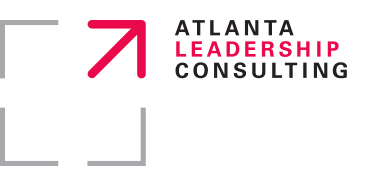“A coach is someone who tells you what you don’t want to hear, who has you see what you don’t want to see, so that you can be who you have always known you could be.” –Tom Landry
While there was a time when having an executive coach was viewed as a negative, those days are long gone.
Today, having a coach means that your organization sees value in you and wants you to become all you can be. Much of our coaching practice is focused on helping leaders make the transition to more senior roles.
Executive coaches play four roles:
First, a coach is a professional development expert in a specific discipline, such as leadership development, performance management or emotional intelligence, who provides guidance and insight.
Second, a coach is a partner who challenges your thinking as a leader.
Third, a coach is a confidant and trusted advisor.
Fourth, a coach is an objective outside resource.
We find that as coaching engagements progress, the roles tend to shift some, but very often, we’ll play all four of these roles at one time or another for a client.
Examples of the events that prompt the desire for a coach include:
A significant new challenge. Perhaps your organization’s VP of Sales for the past 10 years has been named President and COO with a shot at CEO if all goes well. Providing some support during the transition can make all the difference.
Identification as a High Potential. High Potentials often have an edge to two that needs smoothing if they are to succeed, and they also need to begin to develop some competencies or practices that may not yet have been tested but will become important in the near future.
Moving to a new organization with a different culture. Often an executive coach with knowledge of corporate cultures can help make that transition a success.
Promotion to a leadership role. It’s probably the toughest transition anyone makes, but some coaching support at the right time can dramatically increase chances for success.
New team, new leadership, or new direction. Depending on circumstances all these can be tough, and coaching support can smooth things out.
Every coaching engagement is different, and since each requires good coach-learner chemistry, we offer a no obligation intake interview. At the end of the initial 1- or 2-hour meeting, if either party feels it’s just not the right combination, or isn’t confident about moving forward, no professional fees are due. We often include both 360-degree feedback and Myers Briggs Type Indicator (MBTI) assessment as part of executive coaching, but neither is required, since each situation is unique.
If you’ve been thinking it might be time to bring in an executive coach, either for yourself, or for someone else in your organization, let’s talk.
Phone: 770-500-5815
Email: Clarke@AtlantaLeadership.com
“Clarke Peterson and I worked together at Utica National for nearly 20 years, and he did a wonderful job installing and insuring the success of our corporate leadership development program. During my participation in one-on-one feedback sessions with Clarke, I thought his analysis of the data was insightful, and the personal interaction made it an enjoyable experience. Overall, it was a great experience for me.”
— John R. Zapisek
EVP & CFO, retired
Utica National Insurance Group
“I think the most helpful and impressive thing you did for me was provide light where there was nothing but darkness. When we first met, I had absolutely no clue what types of things I could do to improve my circumstances. You were able to focus my attention on some subtle but critical areas I could work on to change for the better. I have benefited tremendously from practicing the techniques you brought to my consciousness. As you know, the result for my company was improved performance as I received the award for the largest increase in sales for the year.”
— Bernie Spreitzer
Account Manager, retired
Cargill

